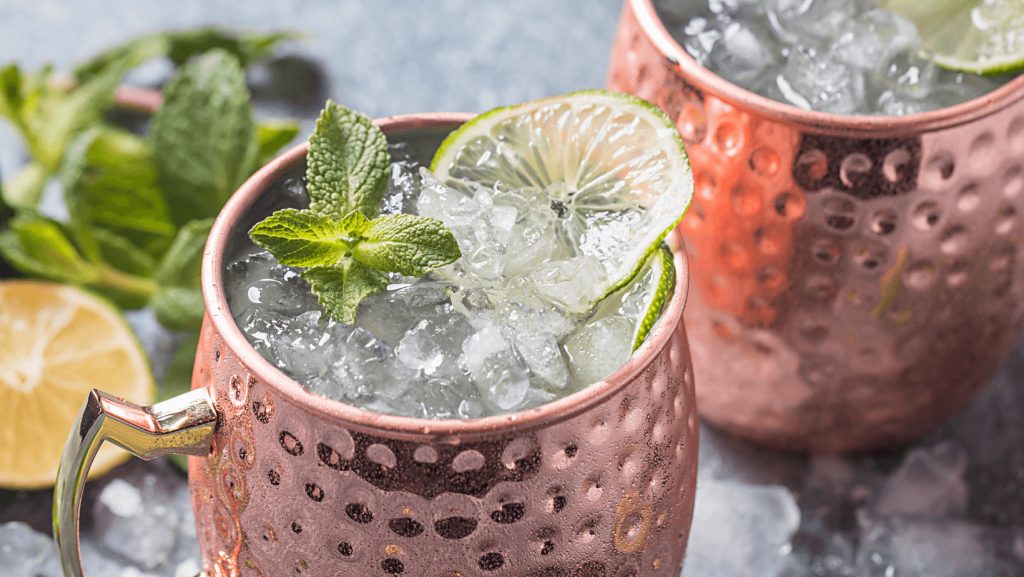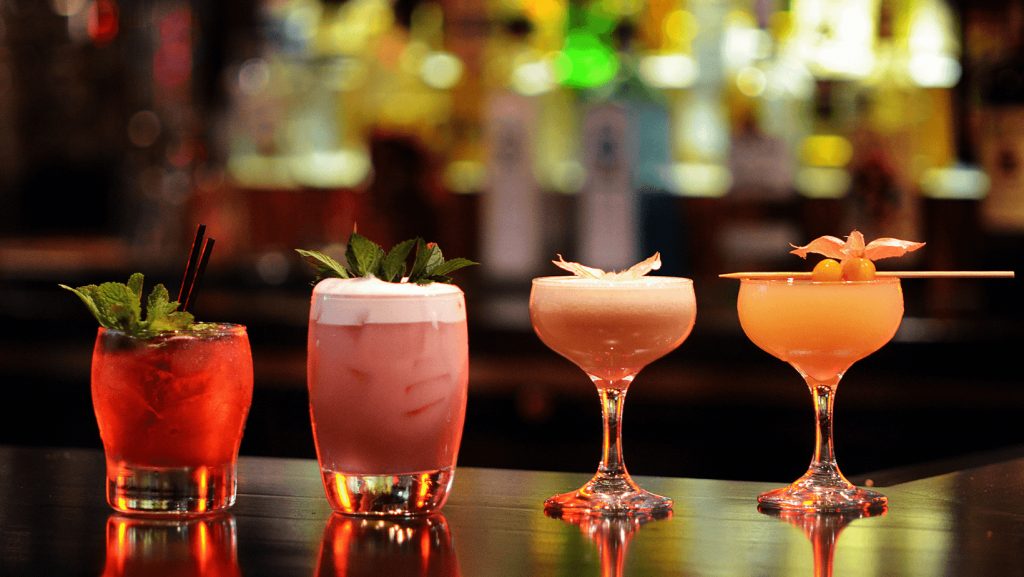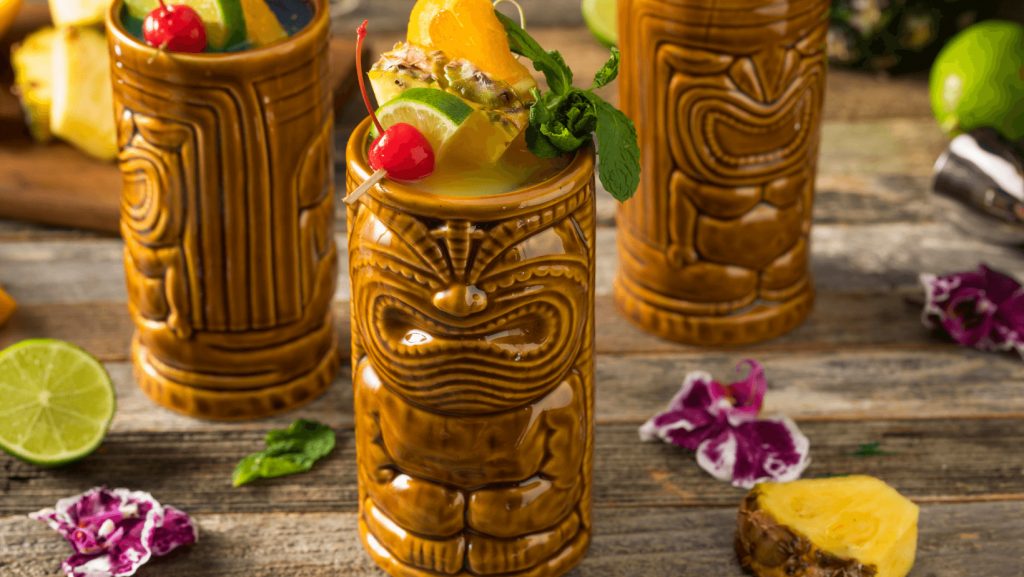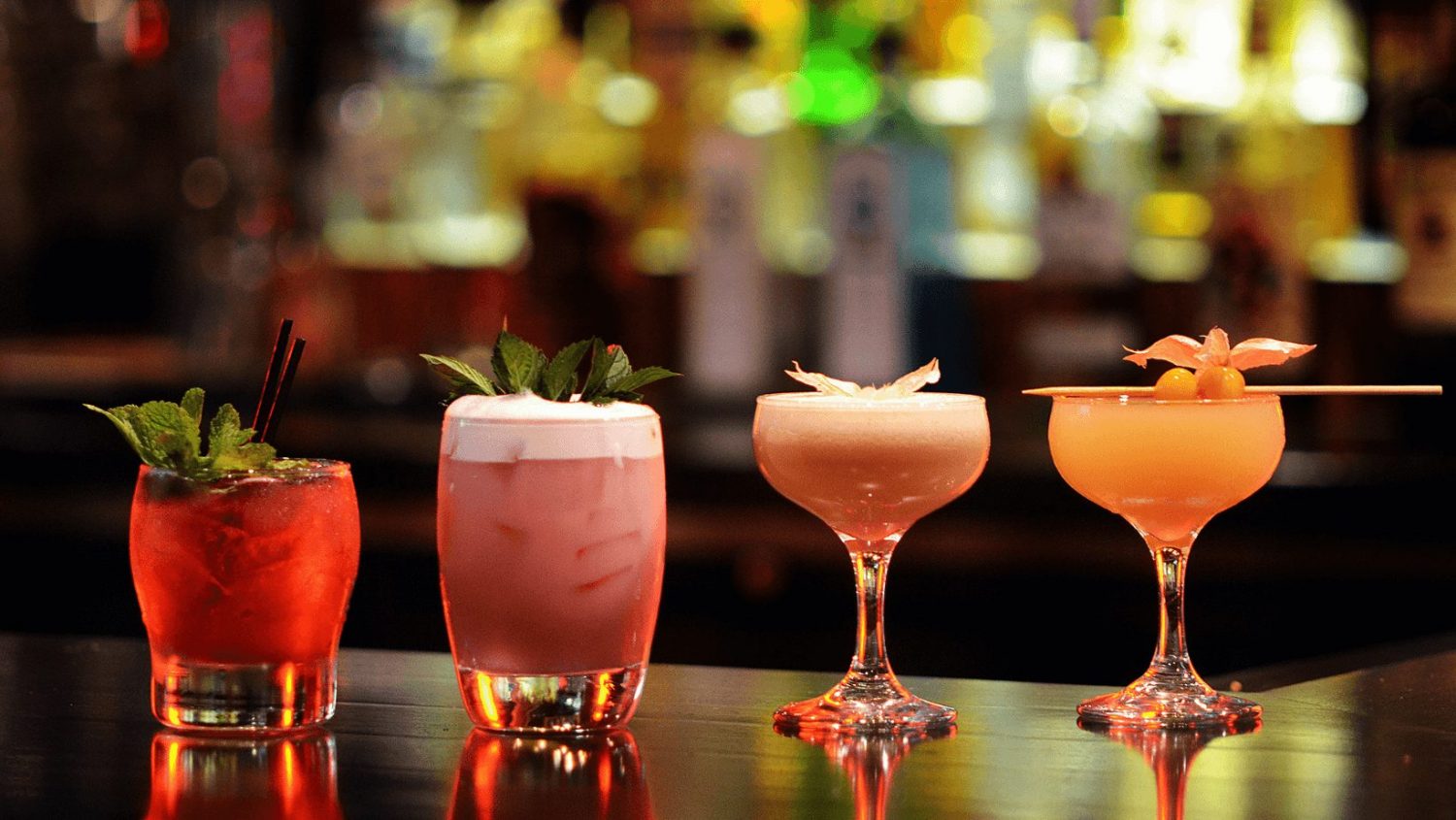
The Literal Approach
Let’s start with the most straightforward naming formula. As cocktail culture blossomed in the late 1800s and early 1900s, some cocktail names were formed simply by combining a spirit and a style. For example, the Gin Fizz is an appropriately named bubbly drink made with gin and club soda, among other ingredients. This formula was popular as cocktails were gaining their footing, but since then a number of other naming conventions have also emerged.
One benefit of the literal approach is that it makes it relatively easy for someone to understand what they’re ordering. But there is a more roundabout way to create cocktail names that still reference back to their ingredients. Take the Moscow Mule, for one. Despite its name, it was actually first made in New York. It was given the name “Moscow Mule” as a nod to the geographic origin of vodka, the spirit it contains.
And, of course, once a drink has been popularized, variants will often arise with a twist on the original cocktail name. The Moscow Mule is a great example of this too, as Mule drinks have become increasingly popular in recent years. The Mermaid Mule is one such twist on the classic recipe. It still has the primary ingredients of vodka, ginger beer, and lime juice. But the Mermaid Mule also includes Blue Curaçao, which gives it a beautiful turquoise color that inspired its name.

Tribute Cocktail Names
Another formula for creating cocktail names is to name the drink after a person, often a celebrity. This was especially trendy during the Prohibition era when bartenders would often name drinks after movie stars of the day. The Mary Pickford is a Prohibition cocktail named after an iconic silent film actress. According to one story, Pickford was vacationing in Havana with her husband and Charlie Chaplin, where a bartender created the concoction and named it in her honor.
While this recipe for cocktail names was common in the early 1900s, it saw a significant drop in the latter half of the century. There are few modern-day pop culture figures with popular drinks named after them. However, Portland microdistillery New Deal recently called back to this trend by publishing a recipe for the David Bowie. It calls for chocolate vodka, bourbon, and orange wedges, for any Ziggy Stardust fans ready to give it a try.
And even though celebrity cocktail names have become less common over the years, pop culture figures have still inspired drinks in other ways. For example, Patina Restaurant Group’s corporate mixologist, Evan Charest recently created cocktails inspired by Grammy nominees for Record of the Year. One of the recipes was inspired by The Weeknd’s song “Can’t Feel My Face.” It appropriately calls for ingredients with some kick, combining Ancho Reyes Chile Liqueur, vodka, simple syrup, lemon juice, and mint leaves.

Aspirational Cocktail Names
If you’ve browsed a bar menu before, you may have noticed that cocktail names are also often inspired by their supposed effects. One example of this is the popular tiki cocktail, the Painkiller. This drink was first created in the 1970s at the Soggy Dollar Bar in the British Virgin Islands. The name alludes to the cocktail’s intention as a hangover cure for those still suffering from the night before.
The 1980s also saw a slew of new provocatively named beverages, like the Sex on the Beach. Fittingly, this fruity, refreshing drink is commonly seen on the menu at beach bars and popular vacation spots. Writer and bartender Michael Neff suggests that cocktail names like these, “reflected what people wanted from a bar at the time. The drinks simply helped to facilitate their good time.”
Unsurprisingly, there are also a handful of cocktail names that reference the mind-altering effects of the spirits they include. The Zombie is so strong that it’s said the original bar where it was served limited customers to a maximum of two apiece. The Mind Eraser is another cocktail whose name can become a self-fulfilling prophecy for those who drink too many.

